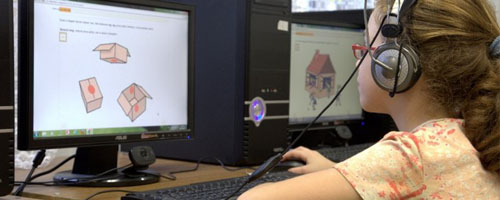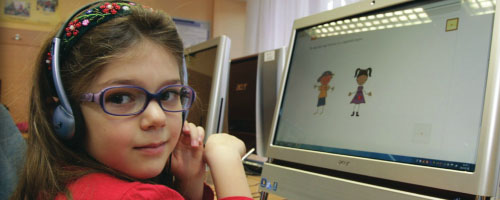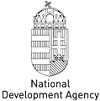Coordinator: Anikó Zsolnai
The main aim of phase one was to develop an electronic and paper-based assessment system that assesses the skills and competences of learners in Years 1-6, tracks their individual development, and explores their learning difficulties. Besides the three main domains (reading, mathematics, and science), options for the diagnostic assessment of further cognitive and affective fields were also explored. (These fields are English as a Foreign Language, visual skills, social skills and competences, civic competence, motivation, health literacy and health behaviour, and learning to learn ). In phase two of the project, the already existing seven fields are to be expanded with the following: writing, ICT literacy, economic literacy, musical skills, problem-solving, combinational and inductive thinking, and creativity. During the selection of the fields, we were not aiming at comprehensiveness, but range and innovation so as to foster a greater variety of options in diagnostic assessment in the long run. (The names of the coordinators can be found in brackets.)
Exploration of options for the diagnostic assessment of further cognitive and affective skills and competences
Writing (Zsuzsanna Nagy)

Studying the factors that determine writing skills and assessing both the creation of online genres and the influence of the media have represented a strong and increasingly important trend in international research. The research pointed out the shortcomings of learners’ composition skills and drew attention to the need for the renewal of the development of this skill. At the same time, we have little information about the state of development of Hungarian learners’ composition skills, the factors that influence it, and the possibilities for effective development. Furthermore, the examination of questions related to composition in an online environment is still an unexplored area in Hungary. The work includes developing detailed frameworks necessary for assessment and constructing and testing paper-based and online composition tests for assessing composition skills. With the instruments developed, assessment of the different dimensions of composition skills becomes possible as well as individual tracking of learners in the first six years of primary school.
ICT literacy (Márta Turcsányi-Szabó and Gyöngyvér Molnar)
 The rapid development of technology, the spread of the internet, and the uploading of content have significantly changed our attitude towards knowledge and the options for accessing knowledge, which has gradually effaced the role of other sources of information. Without ICT literacy, ie. digital literacy, people in the 21st century become seriously handicapped in numerous areas of life. In economic terms, ICT literacy has become a commodity, while in education it has become a key competence. Its examination has appeared in the main national and international educational empirical studies, in the works of the biggest organizations dealing with assessment, and in the Assessing and Developing 21st-century Competences R&D project promoted by three large technology companies. Despite its importance, there is no standard, generally accepted model in the field. During the work, we survey the most significant research related to ICT literacy and the models underlying the research and then make a proposal for the development of an integrated model.
The rapid development of technology, the spread of the internet, and the uploading of content have significantly changed our attitude towards knowledge and the options for accessing knowledge, which has gradually effaced the role of other sources of information. Without ICT literacy, ie. digital literacy, people in the 21st century become seriously handicapped in numerous areas of life. In economic terms, ICT literacy has become a commodity, while in education it has become a key competence. Its examination has appeared in the main national and international educational empirical studies, in the works of the biggest organizations dealing with assessment, and in the Assessing and Developing 21st-century Competences R&D project promoted by three large technology companies. Despite its importance, there is no standard, generally accepted model in the field. During the work, we survey the most significant research related to ICT literacy and the models underlying the research and then make a proposal for the development of an integrated model.
A further portion of the work package involves writing items with multimedia components appropriate to the model that has been developed, compiling the items into tests, and entering data online. By the end of the project cycle, we will have obtained a comprehensive picture of the ICT literacy of today’s primary school children, the so-called ‘NET generation’.
Economic literacy (Edit Tóth)
 At certain levels of the educational system (from primary to higher education), many countries carry out surveys to explore learners’ monetary beliefs and ideas. Former studies dealing with the development of learners’ economic concepts have concentrated mainly on microeconomics; however, the developmental process, during which learners understand the value and use of money in buying and selling, has received much less attention before now.
At certain levels of the educational system (from primary to higher education), many countries carry out surveys to explore learners’ monetary beliefs and ideas. Former studies dealing with the development of learners’ economic concepts have concentrated mainly on microeconomics; however, the developmental process, during which learners understand the value and use of money in buying and selling, has received much less attention before now.
Up until now, very few empirical studies aimed at exploring learners’ economic literacy have been carried out. There is a great need for such scholarly research since, despite the promising initiatives, the ideas available nationally and internationally are extremely limited and scattered.
The aim of this research is twofold: after developing the theoretical background and frameworks for the assessment, the aim is to prepare and develop an assessment instrument which aids in exploring the economic literacy of the age group in question (in Years 1-6) and the factors defining and influencing it. By the end of the project, we will have obtained an overview of the economic literacy of the age group in the early stage of schooling. The results of the assessment may reveal the necessary intervention points and emphasise the importance of the development and application of programs that foster monetary awareness.
Musical skills (Kata Asztalos)
 Studies of skills and neuropsychological research in recent decades clearly support the importance of the development of musical skills, which has a positive effect not only on the whole personality, but also on skills and competences related to other disciplines. The positive feature of musical transfer effects is undisputed, nor is it a coincidence that countries that lead the PISA assessments almost without exception pay a great deal of attention to providing scholarly support for an active education in the arts.
Studies of skills and neuropsychological research in recent decades clearly support the importance of the development of musical skills, which has a positive effect not only on the whole personality, but also on skills and competences related to other disciplines. The positive feature of musical transfer effects is undisputed, nor is it a coincidence that countries that lead the PISA assessments almost without exception pay a great deal of attention to providing scholarly support for an active education in the arts.
Hungarian musical education calls for the introduction and application of 21st-century assessment methods. Our aim is to survey the national and international literature, synthesize the most significant models of musical skills and taxonomies, and analyse the practice of musical education in as many countries as possible in order to ensure an established theoretical background for assessing musical literacy in Hungary. It is key to assess musical skills from the point of view of developmental psychology and to gather and apply the latest results of studies in musical psychology.
During the project, an assessment system will be developed which makes the assessment and individual monitoring of learners’ musical skills possible. With the assessment instrument thus prepared, future studies may supply regular information about the musical development of learners and at the same time may assist in identifying possible problems that inhibit development and provide solutions for future development.
Problem-solving (Gyöngyvér Molnár)
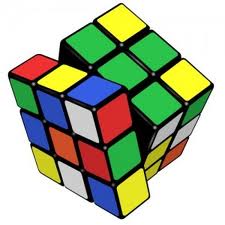 Surveys examining the quality and expedience of knowledge as well as the status of the development of thinking have increased worldwide, after a series of OECD analyses in 2010 confirmed the fact that knowledge is the engine of economic growth. This situation has revalued the role of the relevant studies concerned with problem-solving. The direction of the former, curricula-oriented international research focusing exclusively on the measure of the acquisition of school knowledge has also shifted towards examining applicability and towards studying the level of development of area-specific problem-solving. Problem-solving not tied to context and transcending disciplines plays an important role in OECD PISA, in the US National Assessment of Educational Progress (NAEP), and in the Assessing and Developing 21st-century Competences R&D project. During the project, we will develop a series of assessment instruments which are suitable for diagnosing the level of development of problem-solving ability. The tests in the item bank will be suitable for the examination of the different dimensions of problem-solving ability, as they will involve area- and subject-specific static problems and area-independent dynamic problems as well. The latter, dynamic problems are to be developed in collaboration with the German DIPF (Deutsches Institut für Internationale Pädagogische Forschung) and staff from the Psychological Institute of the University of Heidelberg.
Surveys examining the quality and expedience of knowledge as well as the status of the development of thinking have increased worldwide, after a series of OECD analyses in 2010 confirmed the fact that knowledge is the engine of economic growth. This situation has revalued the role of the relevant studies concerned with problem-solving. The direction of the former, curricula-oriented international research focusing exclusively on the measure of the acquisition of school knowledge has also shifted towards examining applicability and towards studying the level of development of area-specific problem-solving. Problem-solving not tied to context and transcending disciplines plays an important role in OECD PISA, in the US National Assessment of Educational Progress (NAEP), and in the Assessing and Developing 21st-century Competences R&D project. During the project, we will develop a series of assessment instruments which are suitable for diagnosing the level of development of problem-solving ability. The tests in the item bank will be suitable for the examination of the different dimensions of problem-solving ability, as they will involve area- and subject-specific static problems and area-independent dynamic problems as well. The latter, dynamic problems are to be developed in collaboration with the German DIPF (Deutsches Institut für Internationale Pädagogische Forschung) and staff from the Psychological Institute of the University of Heidelberg.
Combinational and inductive thinking (Benő Csapó)
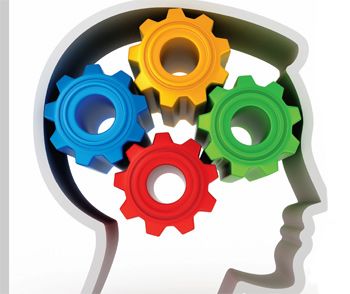 Due to the dynamic development of science and technology in certain areas, schools are unable to transmit ideas that learners might need in a few years’ time, since those ideas might not even exist then. The need has arisen to assess and improve skills and competences that promote lifelong learning, the skill of formulating new ideas from already existing ones, and the ability to apply knowledge – in short, everything that makes for creative learners and good problem solvers.
Due to the dynamic development of science and technology in certain areas, schools are unable to transmit ideas that learners might need in a few years’ time, since those ideas might not even exist then. The need has arisen to assess and improve skills and competences that promote lifelong learning, the skill of formulating new ideas from already existing ones, and the ability to apply knowledge – in short, everything that makes for creative learners and good problem solvers.Within the framework of the work package, the diagnostic assessment of the state of development of two cognitive skills, inductive and combinational thinking, will be explored. The aim is to survey the national and international literature and to identify successful assessment instruments. Also, frameworks that support diagnostic assessment will be developed, new options and tools for assessment will be explored, and items on an online platform will be edited as well. The system of instruments that has been prepared facilitates regular, inexpensive, and reliable assessment of inductive and cognitive thinking, thus establishing a more effective development of the operational skills of thinking.
Options for the diagnostic assessment of creativity (Attila Pásztor)
 The significant role of creativity in modern society is undisputed. Indeed, the power of creativity is manifested in every single scientific discovery, technical innovation, and work of art. Its importance is further intensifying nowadays. The ever more rapid economic, social, and technical development we see today requires new and original ideas and solutions, while creativity is indispensable for success in a wide range of jobs. The currency of the topic is borne out by the fact that the European Union declared 2009 the European Year of Creativity and Innovation, which has also taken on a central role in the framework strategy of 2020.
The significant role of creativity in modern society is undisputed. Indeed, the power of creativity is manifested in every single scientific discovery, technical innovation, and work of art. Its importance is further intensifying nowadays. The ever more rapid economic, social, and technical development we see today requires new and original ideas and solutions, while creativity is indispensable for success in a wide range of jobs. The currency of the topic is borne out by the fact that the European Union declared 2009 the European Year of Creativity and Innovation, which has also taken on a central role in the framework strategy of 2020.One of the tools for preparing for the unpredictable and for new challenges is the improvement of creativity, in which the schools might play a central role. However, setting up a precise diagnosis is indispensable for effective development. The aim is to survey the national and international literature, to research successful assessment instruments, to develop detailed frameworks for the diagnostic assessment of creativity, and to prepare an assessment instrument on an online platform. The assessment instrument opens the possibility of assessing the different dimensions of creativity and the individual tracking of learners in the first six years of primary school. The diagnostic assessment instrument that has been developed contributes substantially to the creation of effective methods and tools aimed at improving creativity.
The preparation of options for the online assessment of cognitive and affective skills and competences already explored
Diagnostic assessment of social skills and competences (Anikó Zsolnai)
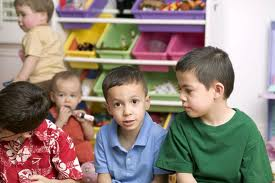 Phase two of the project has a dual aim. Using the results of phase one, we aim at setting up an empirical justification for a theoretical model that provides a complex description of the functioning of social skills and competences. Accordingly, we take up the multitude of factors that influence improvement as the background variable. The other aim of the project is to prepare the theoretical background of programs designed to improve social skills and competences.
Phase two of the project has a dual aim. Using the results of phase one, we aim at setting up an empirical justification for a theoretical model that provides a complex description of the functioning of social skills and competences. Accordingly, we take up the multitude of factors that influence improvement as the background variable. The other aim of the project is to prepare the theoretical background of programs designed to improve social skills and competences.International observations related to the computer-based assessment of social skills and competences will be explored, together with the transfer of already existing paper-based questionnaires into an online environment. As a result of the research, we expect to be able to describe the developmental process of the social skills and competences, ascertain the interlinkage of social skills and competences, identify the set of social skills and competences that can be regarded as essential in childhood, and establish theoretical frameworks for developmental programs aimed at the optimal proficiency and acquisition of social skills and competences.
The development of visual language: diagnostic assessment of traditional and digital creativity (Andrea Kárpáti)
 One of the tasks of contemporary education, urged by many, is the development of authentic and generative assessment methods harmonized with the aims of aesthetic and visual language education. Phase two of the project will involve the correction of the system of items that examines the development of visual skills among 6- to 12-year-olds that was developed in phase one, its large-scale testing in an online environment, and the comparison of the visual creative process using traditional and digital tools. In the initial phase of our research, new visual language typical of 6- to 12 year-olds will be surveyed and case studies prepared. The significance of our research program is that it applies skill testing processes that are the nearest to creative and designing practices as well as to situations of everyday visual communication. A sustainable culture of skills diagnostics is formulated within the repetitive and interlinked circles of assessment, education, and (self-)improvement.
One of the tasks of contemporary education, urged by many, is the development of authentic and generative assessment methods harmonized with the aims of aesthetic and visual language education. Phase two of the project will involve the correction of the system of items that examines the development of visual skills among 6- to 12-year-olds that was developed in phase one, its large-scale testing in an online environment, and the comparison of the visual creative process using traditional and digital tools. In the initial phase of our research, new visual language typical of 6- to 12 year-olds will be surveyed and case studies prepared. The significance of our research program is that it applies skill testing processes that are the nearest to creative and designing practices as well as to situations of everyday visual communication. A sustainable culture of skills diagnostics is formulated within the repetitive and interlinked circles of assessment, education, and (self-)improvement.
Diagnostic assessment of civic competence (László Kinyó)
 One of the key elements in the preservation of democratic societies is that citizens actively take part in the management of personal and public affairs. Civic competence is one of the most effective tools for creating social balance and in the formation of behavioural forms among democratic citizens. Indeed, these might be utilized in moderating the social and cultural inequalities of our society. The development of the paper-based tests related to civic competence started in phase one of the project in 2010, as a result of which 20 tests (five test pages) and 75-88 items were prepared for Years 1-6. In phase two of the project, international experience related to computer-based assessment of the component of civic competence will also be surveyed, and paper-based and computer-based items, tests, and questionnaires related to the field of skills, competences, and attitudes of civic competence will be developed.
One of the key elements in the preservation of democratic societies is that citizens actively take part in the management of personal and public affairs. Civic competence is one of the most effective tools for creating social balance and in the formation of behavioural forms among democratic citizens. Indeed, these might be utilized in moderating the social and cultural inequalities of our society. The development of the paper-based tests related to civic competence started in phase one of the project in 2010, as a result of which 20 tests (five test pages) and 75-88 items were prepared for Years 1-6. In phase two of the project, international experience related to computer-based assessment of the component of civic competence will also be surveyed, and paper-based and computer-based items, tests, and questionnaires related to the field of skills, competences, and attitudes of civic competence will be developed.
Diagnostic assessment of the development of learning English as a Foreign Language (Marianne Nikolov)
 Assessing proficiency in English as a Foreign Language in Years 1-6 of primary school is a key task and it represents a serious challenge for both in-service teachers and specialists not only in Hungary, but also on the international stage. In the first stage of the project, the theoretical and test development frameworks were set up for diagnostic assessment and items assessing the four basic skills were tested on more than 2000 schoolchildren, these items being suitable for the diagnostic assessment of 6- to 13-year-old learners. In the second part of the project, the work will continue and as a result theoretical frameworks supporting the teaching of English as a foreign language and an item bank will be developed which is suitable for the diagnostic assessment of proficiency in English as a Foreign Language. The placement of tests on an electronic platform provides regular, cost-effective, and immediate feedback on the state and development of learners’ proficiency in English as a Foreign Language. The development of frameworks and the analysis of data gathered during the testing of items may provide information necessary for improving the effectiveness of teaching foreign languages. The experiences and results aid teachers in choosing and implementing the appropriate developmental processes and educational methods.
Assessing proficiency in English as a Foreign Language in Years 1-6 of primary school is a key task and it represents a serious challenge for both in-service teachers and specialists not only in Hungary, but also on the international stage. In the first stage of the project, the theoretical and test development frameworks were set up for diagnostic assessment and items assessing the four basic skills were tested on more than 2000 schoolchildren, these items being suitable for the diagnostic assessment of 6- to 13-year-old learners. In the second part of the project, the work will continue and as a result theoretical frameworks supporting the teaching of English as a foreign language and an item bank will be developed which is suitable for the diagnostic assessment of proficiency in English as a Foreign Language. The placement of tests on an electronic platform provides regular, cost-effective, and immediate feedback on the state and development of learners’ proficiency in English as a Foreign Language. The development of frameworks and the analysis of data gathered during the testing of items may provide information necessary for improving the effectiveness of teaching foreign languages. The experiences and results aid teachers in choosing and implementing the appropriate developmental processes and educational methods.
Diagnostic assessment of the development of motivation (Krisztián Józsa)
 The spread of computers makes new assessment methods possible in the examination of motivation. We distinguish between several levels of examination methods from the transfer of paper-based questionnaires to computers to games suitable for assessing motivation. In phase one of the project, we reviewed the most significant international survey trends, outlined possible national developments, and made great progress by launching the computer-based assessment of lower primary school children’s motivation. In phase two of the project, we will develop computer-based examination methods and effect individual, interview-type examination methods to assess motivation towards reading and mathematics. These diagnostic tools will presumably supply feedback to teachers on the motivation of learners in a direct, simple, and easy-to-use form, thus aiding teachers significantly in choosing and implementing the developmental processes and educational methods to be applied.
The spread of computers makes new assessment methods possible in the examination of motivation. We distinguish between several levels of examination methods from the transfer of paper-based questionnaires to computers to games suitable for assessing motivation. In phase one of the project, we reviewed the most significant international survey trends, outlined possible national developments, and made great progress by launching the computer-based assessment of lower primary school children’s motivation. In phase two of the project, we will develop computer-based examination methods and effect individual, interview-type examination methods to assess motivation towards reading and mathematics. These diagnostic tools will presumably supply feedback to teachers on the motivation of learners in a direct, simple, and easy-to-use form, thus aiding teachers significantly in choosing and implementing the developmental processes and educational methods to be applied.
Diagnostic assessment of health literacy and health behavior (Mrs László Nagy)
 An accentuated developmental task of public education is the development of learners’ health literacy and health behaviour, since the transmission of knowledge and health education in childhood establishes health literacy in adulthood and affects the individual’s state of health. The condition of successful developmental work is the diagnostic assessment of learners’ health literacy and health behaviour and the development of their persistent monitoring. The development of health literacy and health behavior requires the development of assessment instruments that cover the components of psychic structures and the areas to be measured, meet the standards and requirements of health education, and are suitable for determining the starting level and for tracking development. On the basis of the results of phase one, the aim of the project is to develop paper-based and online tests suitable for the diagnostic assessment of the health behavior and health literacy of Hungarian learners in Years 1-6 in an educational environment. The results of our research will outline the current state of development of health literacy and health behavior and their components among Hungarian learners in Years 1-6. Also, they will define the system-level items built upon this diagnosis of health education with the requirements of central curricula broken down by school phases and years, and they may help to design and effectively implement health education programs in schools based on the classroom diagnosis.
An accentuated developmental task of public education is the development of learners’ health literacy and health behaviour, since the transmission of knowledge and health education in childhood establishes health literacy in adulthood and affects the individual’s state of health. The condition of successful developmental work is the diagnostic assessment of learners’ health literacy and health behaviour and the development of their persistent monitoring. The development of health literacy and health behavior requires the development of assessment instruments that cover the components of psychic structures and the areas to be measured, meet the standards and requirements of health education, and are suitable for determining the starting level and for tracking development. On the basis of the results of phase one, the aim of the project is to develop paper-based and online tests suitable for the diagnostic assessment of the health behavior and health literacy of Hungarian learners in Years 1-6 in an educational environment. The results of our research will outline the current state of development of health literacy and health behavior and their components among Hungarian learners in Years 1-6. Also, they will define the system-level items built upon this diagnosis of health education with the requirements of central curricula broken down by school phases and years, and they may help to design and effectively implement health education programs in schools based on the classroom diagnosis.
Diagnostic assessment of learning to learn (Anita Habók)
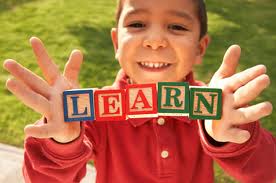 Recent decades have seen a growing significance of the acquisition of skills and competences that facilitate success in the knowledge-based society. The acquisition of quality knowledge is not only a component of economic growth, but also a tool of the individual’s improvement. Also, from the point of view of knowledge related to school, there is a need for the delivery of ideas that track the changes and prepare learners to acquire the necessary ideas with the right methods. Phase two will see the computer-based adaptation and testing of the tasks which were prepared in phase one. With the assessments, we will obtain a more precise picture of the components and effects on Hungarian learners of learning to learn, and the international comparison of the results also becomes possible. For teachers, the results offer the option of designing the developmental work in their own classes.
Recent decades have seen a growing significance of the acquisition of skills and competences that facilitate success in the knowledge-based society. The acquisition of quality knowledge is not only a component of economic growth, but also a tool of the individual’s improvement. Also, from the point of view of knowledge related to school, there is a need for the delivery of ideas that track the changes and prepare learners to acquire the necessary ideas with the right methods. Phase two will see the computer-based adaptation and testing of the tasks which were prepared in phase one. With the assessments, we will obtain a more precise picture of the components and effects on Hungarian learners of learning to learn, and the international comparison of the results also becomes possible. For teachers, the results offer the option of designing the developmental work in their own classes.






